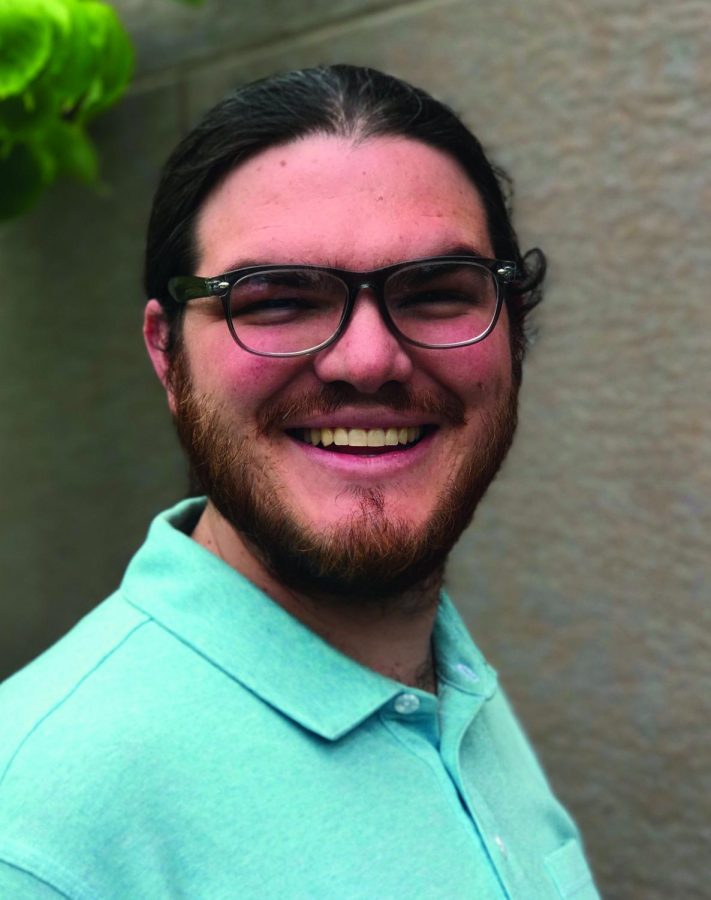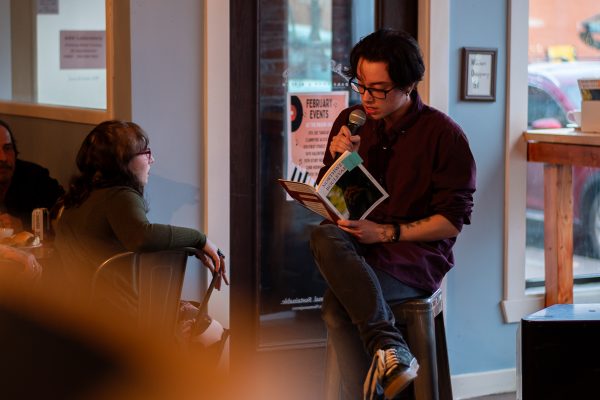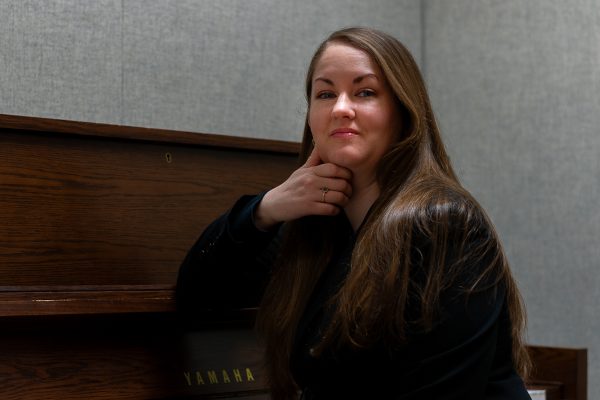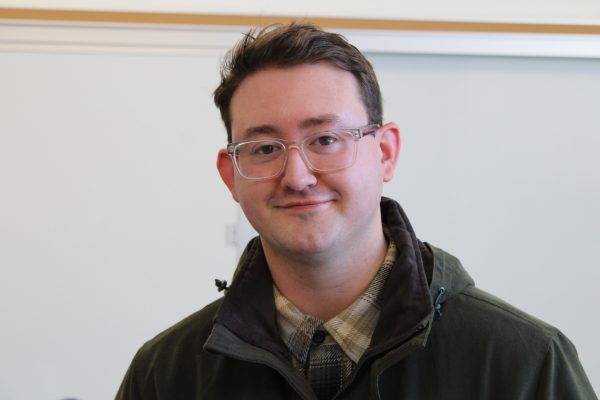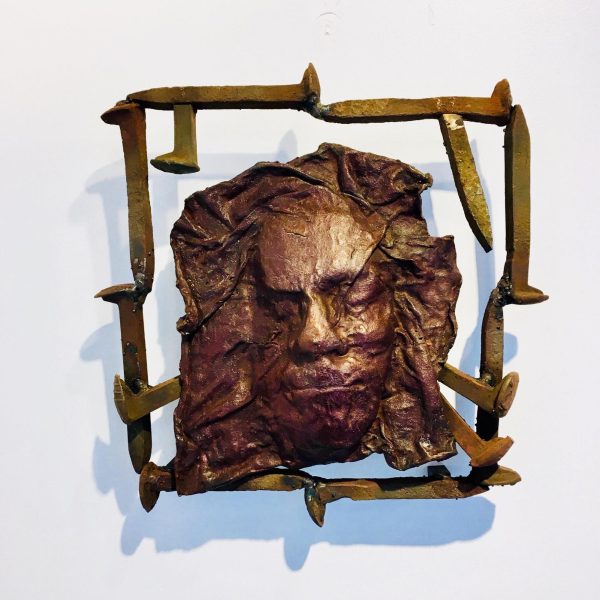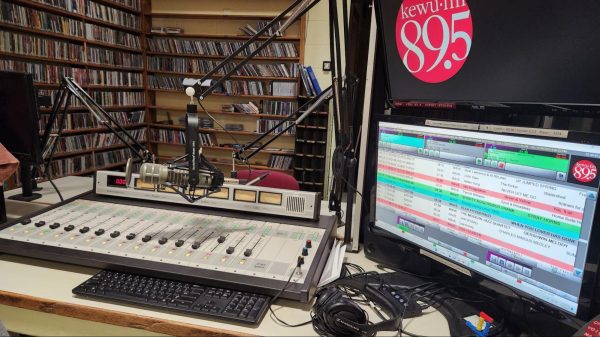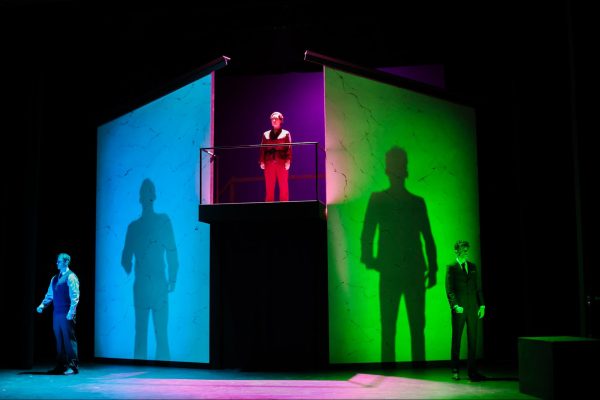EWU alumnus dedicates project to ridding White-only covenants
EWU alumnus Logan Camporeale poses for a photo. Camporeale went to EWU where he obtained his masters in public history.
October 24, 2017
EWU alumnus, Logan Camporeale, speaks out about the research regarding Whites-only covenants that still exist in Spokane.
Camporeale has two degrees from EWU, a Bachelor’s in History, which he earned in 2015, and his most recent degree, a Master’s with a focus in Public History, that he obtained in 2017.
Currently, Camporeale is employed at the Northwest Museum of Arts and Culture as the volunteer coordinator. He also works closely with The Campbell House to help with interpretation and train volunteers. Additionally, he is lecturing to make people more aware of the research he has been working hard on.
A restrictive covenant is defined on the basic terms as a contract or promise, in this case a property document that sets specific rules about what an individual does on their own property. Sometimes there are racial restrictions.
Camporeale found that restrictive covenants were arranged in Spokane from the 1930s to 1960s. He then discovered that they still exist in numerous local neighborhoods.This prevents anyone who is not white from living in these neighborhoods.
“I discovered them while doing some research and I’ve actually been working on getting them removed,” said Camporeale. “I’ve been talking to people to sort of educate them and informing them that their city, that they may have thought was less segregated, was actually segregated. Then also informing them that there’s a process to remove this.”
The Spokesman Review released an article called, “Whites-Only Covenants Still Exist In Many Mid-Century Spokane Neighborhoods” on Dec. 4, 2016. The articled featured Camporeale.
“In more than 30 plats or subdivisions across Spokane County, such covenants still exist, legally attached to the deeds of homes on the South Hill, the North Side and Spokane Valley in the 1940s, ’50s and ’60s,” according to the article. “Even after the Supreme Court declared them unconstitutional and unenforceable, they were written and applied to new additions by developers and though they no longer carry the authority of law, they are still on the books, filed as part of a property record with the county auditor.”
After the article was published, people flooded social media with their comments.
“We got to talk about this stuff,” said Camporeale. “So many people didn’t know this existed and when the article was posted in the newspaper, people were so angry. They were angry that we wrote about it. They thought that we were stirring the pot … I think that we should have this discussion and talk through this. I think that’s a better solution than just to force it away and pretend it didn’t happen.”
Though Camporeale has had the opportunity to present his project, at Whitworth University twice and recently at the PNW History Conference, his main priority is taking action in striking the covenants from the records.
“After I spoke at Whitworth, I was able to connect with this student that lived in a neighborhood that still has restrictive racial covenants,” said Camporeale. “So I’ve been trying to reach back out to The Center for Justice and see if they’re willing to sign a law in turn and try to take on this first case to see if they can have these things stricken from the record. I think it’ll be the first time that it’s been done in Spokane, that I can tell.”
Camporeale is connected with The Center of Justice in Spokane in efforts to seek help with his project.
“We are a voice to the marginalized with the ability to address a wide variety of social justice issues as they arise on our community,” according to The Center of Justice Spokane website.
EWU has a partnership with Washington State Archives. This partnership produced the State Archives building on campus. Camporeale was working there as a graduate student answering reference requests in the Eastern Region branch. That was where he first encountered racial restrictive covenant. He has a strong sense of respect for EWU because of how it allowed him to become the person he is today.
“Obviously Eastern was formative to my experience, and that experience is formative to who I am,” said Camporeale. “It gave me courage to do the things that I’m trying to do. I had top notch professors that I feel like I would have gotten at an R1 school [Doctoral Univesities–Highest Research Activity]. They’d be mad at me for saying that probably but it’s the truth … I am fortunate I think.”



